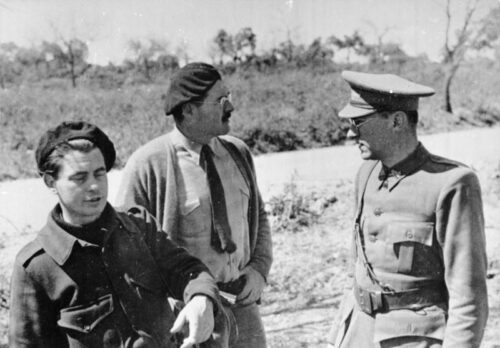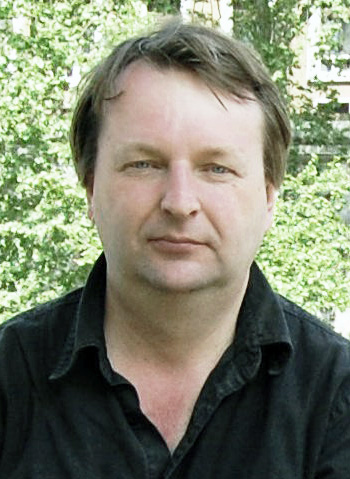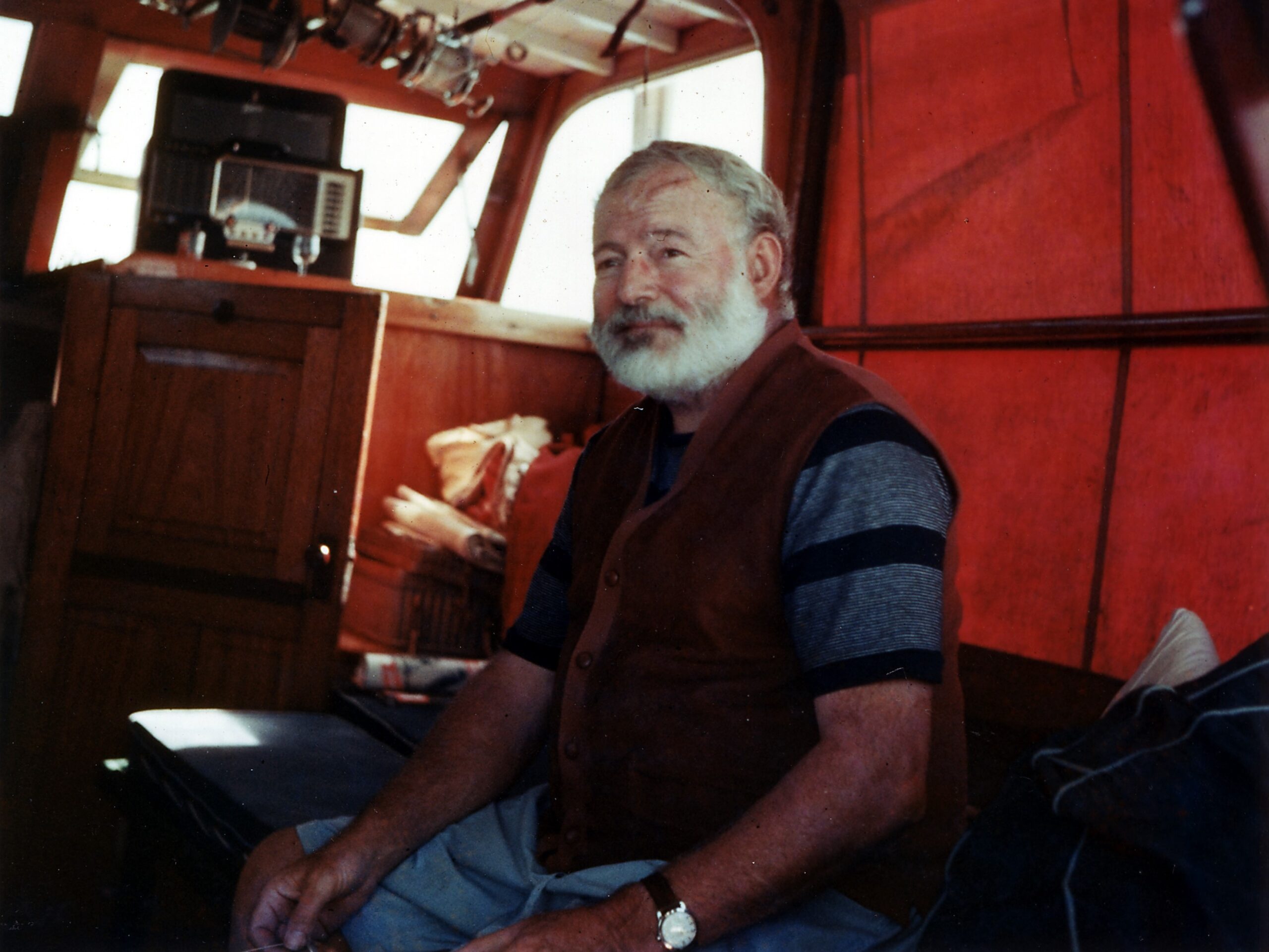Hemingway in the cabin of his boat Pilar, off the coast of Cuba, c. 1950
Ernest Hemingway, a celebrated American author, is known for his novels and literary contributions. However, a lesser-known aspect of his life is his suspected involvement as a spy.
Hemingway’s potential engagement in espionage activities traces back to World War II. He is believed to have undertaken several missions for the United States Office of Strategic Services (OSS), a precursor to the Central Intelligence Agency (CIA). In one of the missions, Hemingway is said to have equipped and set out in his 36-foot fishing vessel Pilar to pursue German U-boats in the Caribbean, aided by the Office of Naval Intelligence (ONI). During World War II, German U-boats were a significant threat to maritime security. Hemingway’s mission was to locate and track down these elusive enemy submarines that threatened Allied shipping routes.
There are indications that Hemingway might have also been a spy for the Soviet Union. During the Spanish Civil War in 1937, Hemingway ardently supported the anti-fascist cause and allied with republican guerrillas fighting against Francisco Franco’s nationalist forces. His involvement in Spain drew the attention of the Soviets, who were backing the Spanish rebels against Franco’s forces, who were supported by Nazi Germany and Fascist Italy. From late 1940 onward, Hemingway is thought to have been a spy for the People’s Commissariat for Internal Affairs (NKVD), the predecessor of the more widely known Soviet intelligence agency, the KGB.

Soviet Files
In 2009, Alexander Vassiliev, a former KGB officer, disclosed “verbatim excerpts from Ernest Hemingway’s official Soviet file” that he had managed to smuggle out of Russia. The excerpts from Hemingway’s Soviet file suggest that Hemingway was given the code name “Argo” and was recruited by Jacob Golos, a top officer in the NKVD office in New York.
Vassiliev, born in Moscow, Russian SFSR, on May 1, 1962, joined the Communist Party of the Soviet Union while studying a Moscow State University (MGU). In 1984, he graduated from MGU with a degree in journalism. During this time, Vassiliev worked in the international department of Komsomolskaya Pravda (Young Communists’ Truth) from 1984 to 1985.
From 1987 to 1990, Vassiliev served as an operative in the First (American) Department of the First Chief Directorate of the KGB. However, in February 1990, he made a significant decision: resigning from the KGB due to political and moral reasons, and also leaving the Communist Party. Returning to Komsomolskaya Pravda, he worked as a reporter and columnist, focusing on international issues and espionage from 1990 to 1996.Additionally, Vassiliev hosted political shows on the Ostankino Channel One from 1991 to 1993.
In 1993, Vassiliev received a call from Iurii Kobaladze, the press officer of the Foreign Intelligence Service (SVR) of the Russian Federation. The SVR proposed an intriguing book project with Crown Publishers, centered around KGB archival documents. Each book would be co-edited by one Russian and one American editor.
Vassiliev agreed to work on a book dealing with Soviet Espionage in America during the 1930s and 1940s. His collaboration with historian Allen Weinstein resulted in groundbreaking works such as Spies: The Rise and Fall of the KGB in America and The Haunted Wood: Soviet Espionage in America: the Stalin Era.

Soviet Expectations
Although the exact specifics of what the Soviets expected from Hemingway remain unclear, his influence, access, and talent as a propagandist would have made him a potentially valuable intelligence asset. His role as a celebrated novelist and journalist could have been leveraged for gathering information or shaping narratives in line with Soviet interests. Whether he provided substantial political information or not remains a mystery, but his intriguing double life as a possible spy adds yet another layer to his enigmatic persona.
This revelation that Hemingway, a literary icon, might have spied for Joseph Stalin’s Soviet regime was a startling discovery for historian Nicholas Reynolds. Reynold, who also spent more than a decade as a CIA officer, documented Hemingway’s covert adventures in his book, Writer, Sailor, Soldier, Spy: Ernest Hemingway’s Secret Adventures, 1935-1961.
In Conclusion
While Hemingway’s literary legacy continues to be celebrated, his possible double life as a writer and a spy adds an element of intrigue to his already adventurous persona. However, the thought that he may have worked for Soviets is deeply disturbing..
*The views and opinions expressed on this website are solely those of the original authors and contributors. These views and opinions do not necessarily represent those of Spotter Up Magazine, the administrative staff, and/or any/all contributors to this site.

